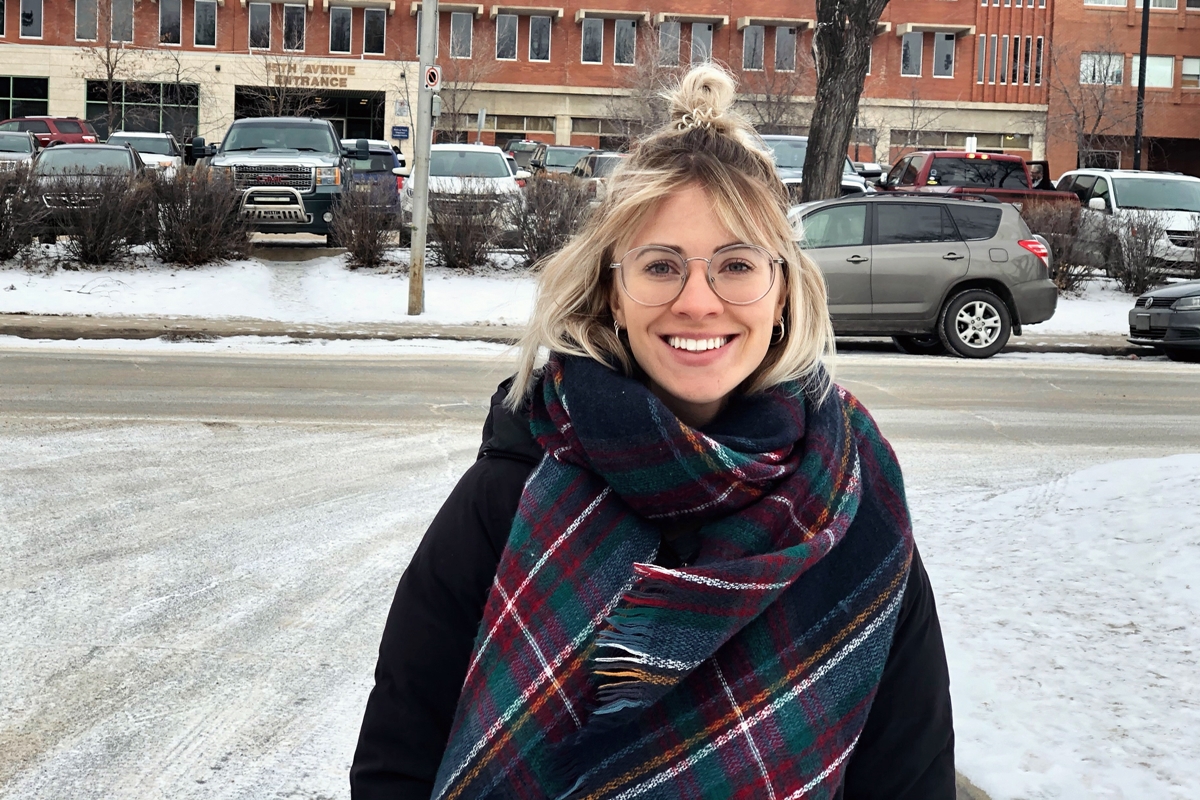
A Look at Forensic Nursing
Brynn Latimer might not be finished her nursing degree just yet, but she sure knows what she wants to do afterwards.
She may not be finished her nursing degree quite yet, but 4th Year College of Nursing student Brynn Latimer from the Regina Campus definitely knows what she wants to do afterwards. “When I started the nursing program, I thought I may want to end up in psychiatric nursing, and now at the end of my program, I am still most passionate about patients struggling with mental health,” said Latimer.
Students complete a number of clinical placements throughout the nursing program and credit the hands-on experience for much of their learning. “School definitely helped with the theory portion of nursing, but I found no matter how much theory I learned, nothing quite prepared me for clinical. I’ve learnt the most when I’ve thrown myself in and been a part of every skill learning experience I possibly could. Every placement I have had has been filled with extensive learning and all the experiences have contributed to my education in a valuable way.”
As a teenager, Brynn struggled with mental health. It was during this time that she realized the negative judgment that people place on those struggling. “My experience resulted in me becoming an advocate for those who struggle with mental health. Not only did I see the large number of people who dealt with mental health issues, but also the groups of people it seems most prominent in. These people are those who lack certain social determinants of health, such as love/belonging, health care, employment, income, social support, coping skills and healthy behaviors. I don’t know how to explain it, but I suddenly became very invested in those who are really struggling. Many of these people seek health care in forensic nursing, which I decided to give a try.”
“The best part of my nursing program was my placement at the Regina Correctional Centre (RCC). It opened my eyes to a large population of people who need a substantial amount of care that don’t have the means to receive it. If I were not placed at RCC, I would have no knowledge of this population. I learnt so much during my clinical placements throughout the nursing program, but I would have to say, I learnt the most practical knowledge in three months at RCC. During my experience, I learnt inmates are like any other person and it is unfair to judge them. I developed great relationships with the inmates, as they are very thankful for the care nurses provide. The nurses at the jail are incredible; they put their heart and soul into caring for this particular population. In my opinion, it is important to recognize how much the nurses make a difference to the RCC population and how the inmates, like any other individual, deserve the best health care possible.”
After completing clinical placements at the All Nations Healing Hospital, on a surgical unit, in a mother baby unit, in pediatrics, at the Regina Correctional Centre and on a psychiatric ward, Brynn is convinced more than ever psychiatric nursing or forensic nursing is the path for her. Not only is Brynn interested in psychiatric and forensic nursing, she is great at it. In fact, on one of her clinical placements, Brynn received commendation for the medical care she provided during a particular incident.
When asked about employment after she finishes the program in May, Brynn replied, “I would like to become a Registered Nurse on the psychiatric ward at Regina General Hospital. I truly enjoyed my clinical placement there and I hope I will once again be able to provide care to those patients in the near future. Ultimately, my dream job is to become a psychiatric nurse in the emergency department.”

